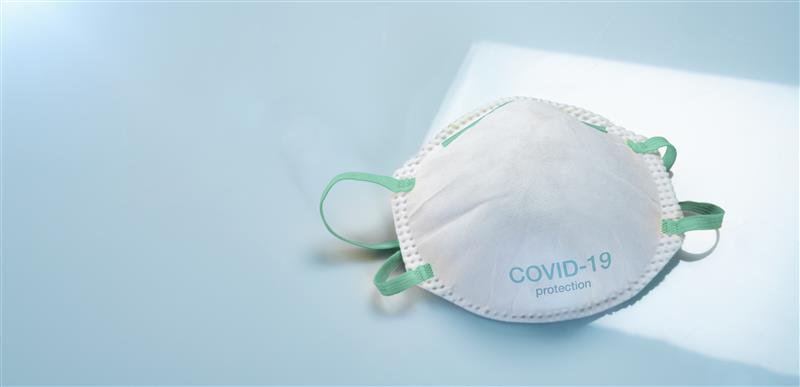DCAS’ Inconsistent Record-Keeping Put City at Risk of Price Gouging During Early Days of COVID-19

Auditors in the New York City Comptroller's Office investigated $1B+ of emergency procurements for PPE & ventilators in first 3 months of the pandemic
New York, NY – The New York City Comptroller’s Office released a review that found that the Department of Citywide Administrative Services’ (DCAS) inconsistent documentation, lack of documented price analysis, and poor oversight made the City susceptible to price gouging and missing or defective PPE orders at the onset of the COVID-19 pandemic. Out of 59 procurements with a total initial value at over $1 billion, DCAS did not provide documents on 11 vendor background checks. In 4 out of those 11, the vendors provided either defective products or did not provide any goods at all. In addition, DCAS identified adverse information for 6 procurements (total $173 million), but did not report this information to Mayor’s Office of Contract Services (MOCS) or the Law Department.
“Emergency procurement is a necessary tool for responding to crises – the City cannot slog through a RFP process while people are getting sick and dying. But the City must protect itself from crisis profiteers,” said Comptroller Brad Lander.
Comptroller Lander acknowledged the extraordinary scale of the challenge that DCAS and other City agencies faced during the early days of COVID-19.
Comptroller Lander continued, “DCAS scaled up its operations in truly unprecedented times to procure PPE and ventilators when supplies were scarce and the competition was fierce for resources. Checks and balances exist to mitigate risks even in crises, since unfortunately some vendors will price gouge, look to get paid for shoddy products, or claim to sell items they don’t have at all. This review can serve as a guide for future emergencies for how to balance the need to move swiftly with appropriate controls for vendor responsibility and price documentation.”
To procure essential goods that were in short supply for the City, Mayor Bill de Blasio issued an emergency executive order (EEO) that suspended some procurement rules, including the requirement for competitive bidding. However, City Hall’s guidance did not suspend agencies’ obligation to conduct “vendor responsibility determinations,” which are intended to mitigate risk of contracting with irresponsible vendors. When vendors fail to provide goods or provides defective goods, the City incurs additional legal, contractual, and administrative costs on top of the delay in supplies. Since DCAS did not consistently conduct vendor background checks or disregarded adverse information, the City risked incurring additional costs and contracting with subpar vendors.
The Mayor’s Office of Management and Budget (OMB) issued guidance urging agencies to do their best to comply with procurement requirements, including “cost reasonableness/cost comparison prior to solicitation.” While DCAS claimed that it conducted price analysis and that reasonableness varied over time based on fluctuations in stock and availability, auditors found that DCAS did not document price comparisons. Auditors also found that DCAS may have overpaid for some items. For example, DCAS paid Destiny Aprons $7.50 per cloth mask for one order and $4.80 per piece for another order of the same masks, more than double the average price of a cloth mask at $2.21 apiece.
In addition, the City created a 4-member Prepayment Review Committee (DCAS, MOCS, OMB, the Law Department) to authorize prepayments of goods and services in response to COVID-19 in March 2020 (in normal procurement, the City does not pay for goods until after they are delivered and verified). DCAS did not obtain approval or did not document approval from one or more members of the Committee for more than half (17) of the sampled 32 prepaid procurements. In 5 out of those 17 procurements, vendors did not provide goods or provided defective or poor-quality goods. Notably, DCAS prepaid Digital Gadgets $9.1 million for ventilators that the vendor was unable to deliver. This money was then applied instead to a delivery of N95 masks that were of poor quality or not FDA-certified. Only on the third try did Digital Gadgets provide masks that were accepted by DCAS.
In light of the auditors’ findings, the Comptroller’s office recommends these key steps to reduce the risk of wasteful spending during future emergencies:
- Ensure that staff perform, document, and report its reviews of vendors.
- Conduct document analysis for reasonable prices that form the basis of vendor selection.
- Maintain supporting documentation for procurement in files and records.
- Determine whether to permit advance payments to procure goods, services, and construction during emergencies, and if so, establish protocols to mitigate risks.
Across Fiscal Years 2020 to 2022, Mayoral agencies (primarily under the previous administration) used emergency executive authority to enact 886 new COVID-19 contracts, valuing $6.24 billion, relating to homeless shelters, emergency hotels, staffing, personal protective equipment (PPE), food, supplies, testing services, and ventilators. Additionally, the administration processed 774 contract modifications and 96 task orders since March 2020.
The City is currently utilizing emergency procurement, authorized by Mayoral Executive Orders and affirmed by the Comptroller, to address the humanitarian crisis on Rikers Island as well as provide shelter and services for asylum-seekers.
Read the auditors’ findings here.
###